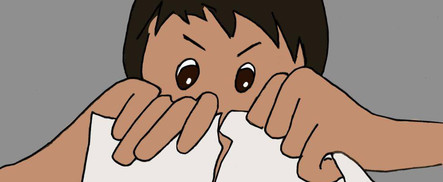
My parents put me in speech therapy in the second and third grades and I hated it. “All we ever do is play games,” I told my parents. “It’s useless.” At the end of third grade, I found a letter from my teacher to my parents about my stutter “problem.” I got mad and ripped it up, and never went to speech therapy again.
In the fifth grade, I had only one line in the school play. In the eighth grade, I convinced my English teacher to allow me to abstain from the speech contest. Throughout school, I would look for classes that I knew didn’t have any oral presentations. Of course, this wasn’t always possible. In ninth grade English class, we were going around the room reading passages from Julius Caesar, which is already difficult enough to recite without a stutter. When it was my turn, I stumbled through a few words, and eventually hit a roadblock. The room was silent for a few seconds, until another kid yelled out, “Spit it out!” Everyone else in the class laughed. I was humiliated, but I also felt confused. What did I do wrong? Sure, I don’t sound like most other people when I talk, but so what? It took me a while to realize the other kid in that class was the one really saying something wrong.
I became good at avoiding my stutter after that. I even stopped referring to myself by my hard-to-say name. It was a skill, but it was also something that I knew I had to address at some point. It was affecting me inside and out of school. The way I was dealing with my stutter was simply making my life worse.
I have just now turned 22, and I'm finally going to do something. I'm going to own my stutter.
To use the cliché Bernard Baruch quote, “Those who mind don't matter, and those who matter don't mind.” Why should I cater to other people by hiding what I sound like?
A quote from another blog post on this site resonated with me: “It takes two to stutter.” My stutter is a social construct that does not exist on its own. It exists in the context of a ripped up letter or a ninth grade bully. But it doesn't have to.
- David Kramer

 RSS Feed
RSS Feed
